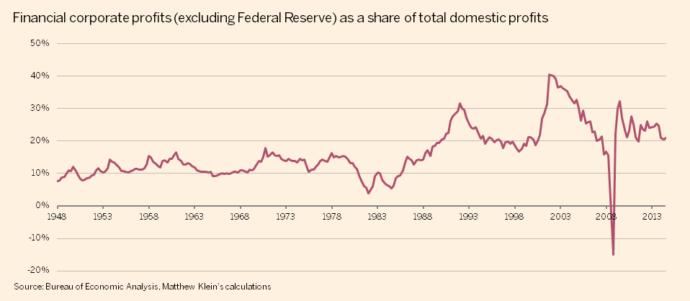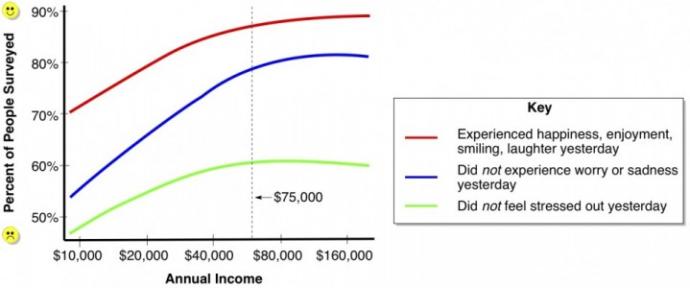
OK, anyone can tell that there's something very wrong with our healthcare system. The US has 17% of its' GDP going to healthcare costs while other countries only have ~11%. Those on the left has said that other countries have healthcare costs so much lower than the US because they have universal healthcare but republicans claim it's because we "regulated the hell out of it in the 1970s" and "clogged it up with beaurocracy". Well, as we can see, the US spending on healthcare as a percent of the GDP became noticeably different from other countries in the 1980s. Well what happened then? What happened was the growth of wealth inequality with the decrease in the tax rate on the top 1% in the US.

Under the principals of "Reaganomics" marginal tax rates on the rich were decreased putting a greater financial burden on the middle and lower classes. All of this happened while medical technology was continuing to advance and thus become more expensive. And if we look at other developed countries, it's apparent that the operating costs of more advanced medicine had a percent growth rate greater than the overall GDP of the country. So in the US, we had healthcare costs growing proportionately faster than the GDP while the middle class was earning a smaller share of it. This meant that many people couldn't pay for it out of pocket and became dependent on insurance companies to pay for their medical expenses. And we see a similar pattern in many other industries and services (such as housing and education) where the American median income wasn't moving as fast as the costs were increasing so people became dependent on the parasitic financial sector to obtain a house or education.

It's been argued that when the financial sector makes more it benefits society in ways such as increased investment but there's no evidence for that. Many believe that the US has shifted to a service based economy versus a production based. But with 40% of all corporate profits going to the financial sector in 2007, it's plain to see that a big part of it is just moving money around and as we learned the hard way in 2008, eventually running out of other people's money isn't a problem exclusive to welfare states. Due to the fact that healthcare is a necessity with an inelastic demand, insurance companies could price gouge people and charge high premiums. This is why the government had to impose limits on how much could be charged. And yes, the government regulations mean that insurance companies have to hire people who are experts in these rules to navigate them which does cut into their profit margin with greater operating costs. But what's the alternative? Let them price gouge people? And yes competition would prevent them from gouging as much as they like but given that competition is going on now, even though it would limit the costs of the premiums, insurance companies would charge greater rates than they do now. One counter to this is that wealth is wealth so what's the problem? Wealth is wealth no matter where it ends up so isn't anything decreasing efficiency (and thus income to operating costs ratio) bad? Well that's only part of the picture. While there is a positive correlation between income and quality of life, the relationship isn't linear but follows a pattern of diminishing marginal returns:

One thing I'd hope we can all agree on is that we don't exist for the economy, the economy exists for us so if you're going to chose a policy that benefits the finances versus human well being, you should go with the latter. Now let me establish that I'm not for equality of outcome because I think there is a strong (but often overblown) case for profit motive driving the creation of new jobs and services that make our lives better as well as work in the businesses that produce them (of course the financial sector doesn't make things, it exploits them). So while we can have a discussion about whether or not wealth is created or devoured by the super rich, the concentration of wealth among a few individuals completely wastes the benefits it provides to society. And we can see this principal in effect when we compare how the tax liability among the top 1% correlates with job creation as well:

So in that context, the regulations are the side effects of a treatment, without which you'd be far more sick than you are now. Of course regulating the insurance company-patient isn't the only way to remedy this situation and we could institute universal healthcare and cut out the "insurance company middleman" and free up a trillion dollars in the US economy. But won't that result in lower quality of care? Well no, US all cause mortality rates are higher than they are in comparable countries. But what about regulations on drugs? Don't they have induce clout into the system. Again, any kind of regulation is going to introduce some kind of inefficiency but the detrimental impacts of a policy have to weighed against the benefits that they provide to society (and on the basis of how they benefit human well being versus overall revenue). Our total knowledge pool as a society is always growing in every field but our brain capacity is what it was before we even learned to farm 20,000 years ago. Emerging pharmaceutical technology is based on more and more advanced knowledge of human physiology, the kind people would need a post-graduate degree in biology to understand so asking everyone to make "informed decisions" on how safe and effective drugs are based on how they're produced is completely unrealistic. Others have argued that the government regulations create quasi monopolies over certain drugs because the R&D costs regulations impose make it financially impractical for another company to develop a drug that treats the same condition. The argument goes that without any competitors, the pharmaceutical companies can price gouge people for their drugs and if the regulations were gone, the free market would drive down prices as a result of competition and keep drugs safe in lieu of regulations. Well, first of all, is there any evidence that the free market can do this (I know so called "libertarians" dogmatically adhere to the idea that the free market makes everything better while ignoring many economic nuances)? Second, even if that was true, the problem of R&D costs still applies, only in this case it's the free market instead of the government imposing the barrier so it still would be financially impractical for a startup company to develop a competing drug. So that leaves price capping as the best method to make medicine less expensive. Now you might ask won't that lead to a decrease in the quality of new drugs? That's highly unlikely because for many pharmaceutical companies, the profit margin (not total revenue, profit margin) is greater than the R&D costs. Now one way I think we could maximize both innovation and affordability is to price cap generic drugs but have more laxed restrictions on new drugs so that way if companies want to keep turning out high profits, they have to keep innovating but there's a lot less incentive to innovate when you can sell the drug you have at high prices with little fear from competitors. You might argue that it's wrong for the government to tell companies what price that they can and can't sell a drug that they invented. Well tell you what, if you don't think the government shouldn't have a say in how the drug you invented is marketed, don't ask the government to issue and enforce a patent for it ;)
So as much as people on the right would like to blame government regulations on the increased healthcare system, inefficiencies that result from such regulations are just the side effects of treating a much greater underlying illness (expansion of income inequality) and while having such regulations might be better than letting insurance companies price gouge their patients, it still wouldn't be anywhere near as good as switching to the public option.
 Holidays
Holidays  Girl's Behavior
Girl's Behavior  Guy's Behavior
Guy's Behavior  Flirting
Flirting  Dating
Dating  Relationships
Relationships  Fashion & Beauty
Fashion & Beauty  Health & Fitness
Health & Fitness  Marriage & Weddings
Marriage & Weddings  Shopping & Gifts
Shopping & Gifts  Technology & Internet
Technology & Internet  Break Up & Divorce
Break Up & Divorce  Education & Career
Education & Career  Entertainment & Arts
Entertainment & Arts  Family & Friends
Family & Friends  Food & Beverage
Food & Beverage  Hobbies & Leisure
Hobbies & Leisure  Other
Other  Religion & Spirituality
Religion & Spirituality  Society & Politics
Society & Politics  Sports
Sports  Travel
Travel  Trending & News
Trending & News
What Girls & Guys Said
Opinion
1Opinion
Didn't read the whole thing but I the fundamental problem is healthcare is guaranteed by the government, the guy who's getting the service is not the guy who's paying. It creates a margin for inefficiency because the customer doesn't care (what the price is) and the service provider doesn't care (about if they're lowering the prices and/or are competetive or not), it's doesn't seem like a capitalistic competetive system. Costs seem fixed and it seems more like an insurance fixation thing than a competitive systems.
As a wise man once said, "show me the incentives and I'll show you the future"
You're argument is based on a false assumption: that the only incentive is profit
hbr.org/.../people-dont-need-a-profit-motive-to-innovate
But profit incentive does give you a motivation to price gouge decreasing the benefit to society even if it's more economically efficient.
And if the recipient is paying taxes they are paying for it.
Free markets can't solve all of the worlds' problems. Hopefully one day you'll understand this:
www.econlib.org/.../marketfailures.html
Share the first opinion in your gender
and earn 1 more Xper point!